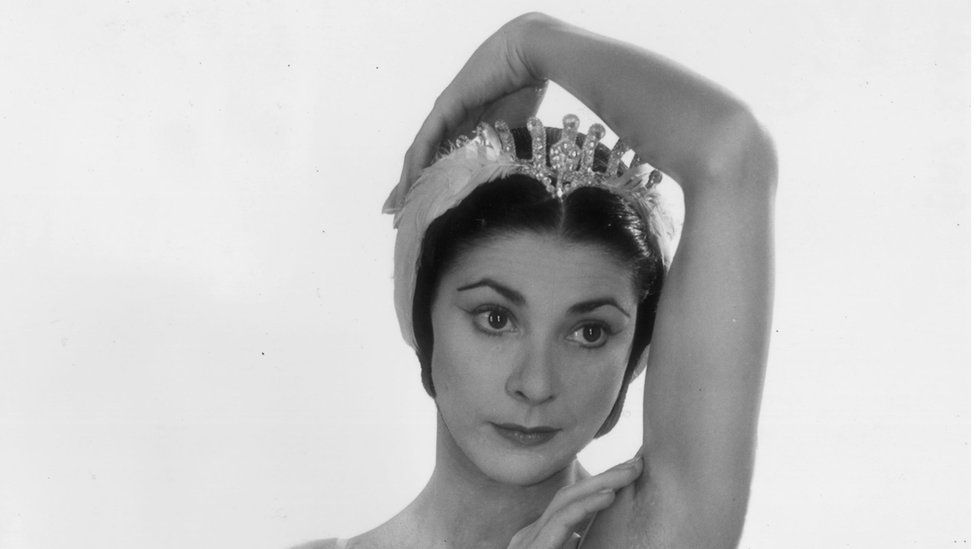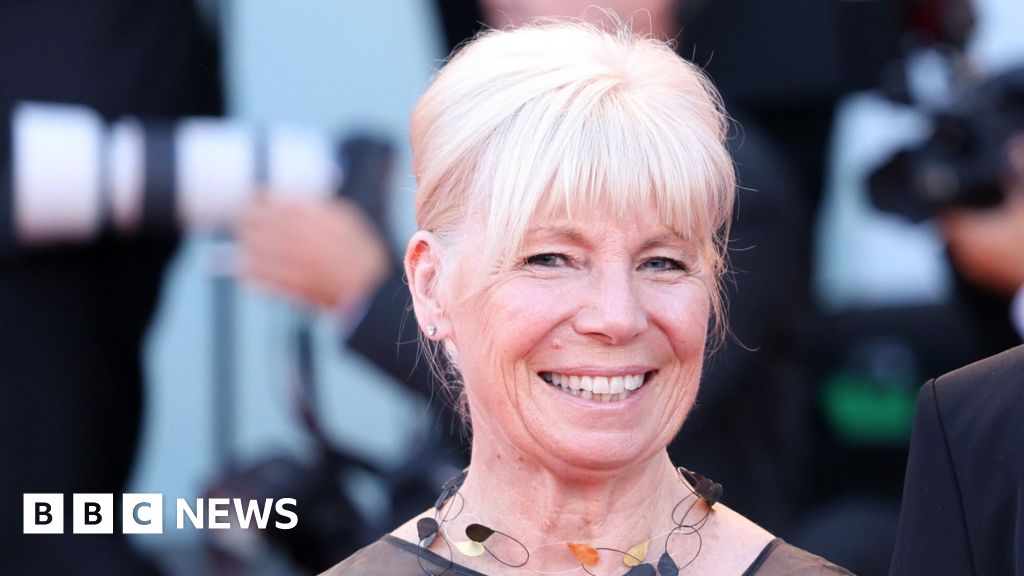ARTICLE AD BOX
 Image source, Getty Images
Image source, Getty Images
Dame Margot Fonteyn became prima ballerina of the Royal Ballet in 1940 and found international fame after a notable performance of The Sleeping Beauty in 1946
By Katie Razzall
Culture editor
More than 90 lost recordings of BBC Radio 4's Desert Island Discs have been discovered by an audio collector from Lowestoft in Suffolk.
Bing Crosby, Dame Margot Fonteyn, Jimmy Stewart, David Hockney and Dirk Bogarde are among the big names who appear in the episodes found by Richard Harrison.
He described finding the missing recordings which date back to the 1960s and 1970s as "a great feeling".
Former Discs presenter Sue Lawley said: "Thank God for Mr Lowestoft."
Image source, Getty Images
Image caption,Bing Crosby tells the programme he was named after a comic strip character
The voices on the re-discovered tapes speak from a bygone era; clipped, formal, with the odd American accent thrown in.
Amongst the US stars are not just Crosby and Stewart but one of the most popular entertainers of the first half of the 20th Century, the actress and singer Sophie Tucker. Unlike these men, but like many others on the list, Tucker is no longer a household name.
Many of the luxuries chosen by the interviewees being cast away are also of a different time.
Fonteyn asks for the kind of "mask that skin divers use".
Bogarde wants John Singer Sargent's "haunting" portrait of the Sitwell family, pointing out that he could turn it into a tent or a raft if he needed to.
Bob Monkhouse asks for a "large colour picture of Marilyn Monroe to remind me of what I'm supposed to forget".
As for reading matter, Hockney requests an out of print pornographic book, Route 69 by Floyd Carter, "otherwise you might fantasise too much on the island".
Crosby wants Roget's Thesaurus because with that, and a sharp stick, "I could do some useful writing".
The programmes are an insight into the lives of some of the (predominately white male) greats of the last century, many of whom are no longer with us. They are also a window on to a British cultural institution.
Richard Harrison in his attic where he keeps collected recordings
I met Richard Harrison at his home in Lowestoft where he told me he's always been "interested in finding missing radio". He's a member of the Radio Circle, a group of enthusiasts who try to locate lost programmes. He says he honed in on Desert Island Discs because it's "such an iconic programme".
For years the BBC didn't automatically archive its radio programmes, so when episodes are missing, collectors like Harrison are dependent on listeners from the period who recorded the shows on reels and cassettes so they could listen again.
Harrison's attic is stacked full of boxes of recordings he's bought at car boot sales and, more often, auctions. Some are labelled, others aren't. In his spare time, he loads them on to his old player to discover what's on them.
"It's a great feeling. You open up a box and you have no idea what might be on the tape."
With the Desert Island Discs, he's struck radio gold.
Dirk Bogarde says he was influenced by Rex Harrison more than anyone else
Harrison was "most excited" to find, on an unlabelled reel, an episode from 1964 with the award-winning actor Bogarde.
"The neighbours must have wondered what was up. I let out a huge yell of triumph, it was a genuinely great moment".
In the show, Bogarde tells the presenter Roy Plomley he was determined to be an actor "as soon as I was born". His first job in the theatre was "cleaning out the gentleman's lavatory in the Kew Theatre".
Bogarde went on to star in films including The Servant, Oh! What a Lovely War and Death in Venice. He reveals in the episode that he had "lost my nerve for the theatre", his first love, and had "decided to pack that in".
The tone is respectful. Plomley, who devised and hosted Desert Island Discs from 1942 until his death in 1985, didn't interrogate his guests in the style of interviewing we have come to expect now; there's rarely a follow-up question.
According to Lawley, early on in the show's history Plomley would take his interviewees out to London's Garrick Club for lunch. "They would have the whole conversation, then he would go home and type it all up. Then they would meet at Broadcasting House across a green baize table and read the script to each other."
Image source, Getty Images
Image caption,Margot Fonteyn says Giselle in Swan Lake is the most difficult to dance
Whether scripted or not, Plomley's recordings are sometimes as interesting for the questions he doesn't ask.
Dame Margot's appearance in 1965 was the 750th edition of the long-running show. The Royal Ballet's prima ballerina extraordinaire told Plomley she was looking forward to living on a desert island as she would be "delighted" to get away from the telephone.
With World War Two still casting a long shadow, she describes being on tour in the Netherlands in 1940 when she saw the German army "landing by parachute". The ballet company "left hurriedly in what we were wearing and what we could wear on top of our ordinary clothes", abandoning scenery, costumes, music, "everything else".
Plomley does mention the Russian dancer Rudolf Nureyev, but only to ask about whether they had to change their styles to work together. Nureyev had defected to the West just a few years earlier and Dame Margot had famously forged a dancing partnership of such chemistry that rumours grew as to the nature of their relationship. Yet Plomley is discretion personified.
Dame Margot is one of just 18 women who appear in the rescued episodes. Others include the 1967 Forsyte Saga star, Nyree Dawn Porter, sometimes described as the first romantic sex symbol of the television age. Her introduction in an episode from 1970 bluntly signals what a different era these recordings were made in.
"This week our castaway is an actress," says Plomley, "and a very attractive one, too".
Sue Lawley presented Desert Island Discs from 1988 to 2006
These rescued episodes are indisputably of their time. They also illustrate why Desert Island Discs, as Lawley puts it, is "much more than a simple little radio show". Its secret is that music is a "direct line to your feeling" and through the music you get "this great tide of emotion that runs underneath it".
The programme was originally on BBC Radio 3 and the mainly classical choices of the guests in these episodes reflect that history.
There are exceptions. Dudley Moore says "when I can't sleep, I'll play a record". His second choice is Spinning Wheel by Blood Sweat and Tears, because "I think pop is giving jazz a tremendous boost in spirit".
Crosby manages to squeeze his friends into his track choices, kicking off with a record from his brother's band, the Bob Crosby Bobcats.
The interview with Crosby took place in 1975, less than two years before he died. But that smooth, unmistakeable voice still sounds like he's in his High Society heyday. He makes a plea to be cast away on an island in the South Pacific, "where you can swim, maybe fashion a hook and fish".
Crosby's luxury is a guitar. "Out there alone, I'd get to be very good at it, but nobody would hear me."
I like to imagine Crosby, and all the other long departed guests of these programmes, happily enjoying their rejuvenated immortality on a distant desert island. They have been given new life in these rescued episodes, and as the crystal surf laps over their sun-drenched feet, we should all rejoice at being able to rediscover them.
The rescued Desert Island Discs episodes are all available first on BBC Sounds. Richard Harrison will appear on Raiders of the Lost Archives on BBC Radio 4 on Thursday and it will also be on BBC Sounds.

 2 years ago
45
2 years ago
45








 English (US) ·
English (US) ·